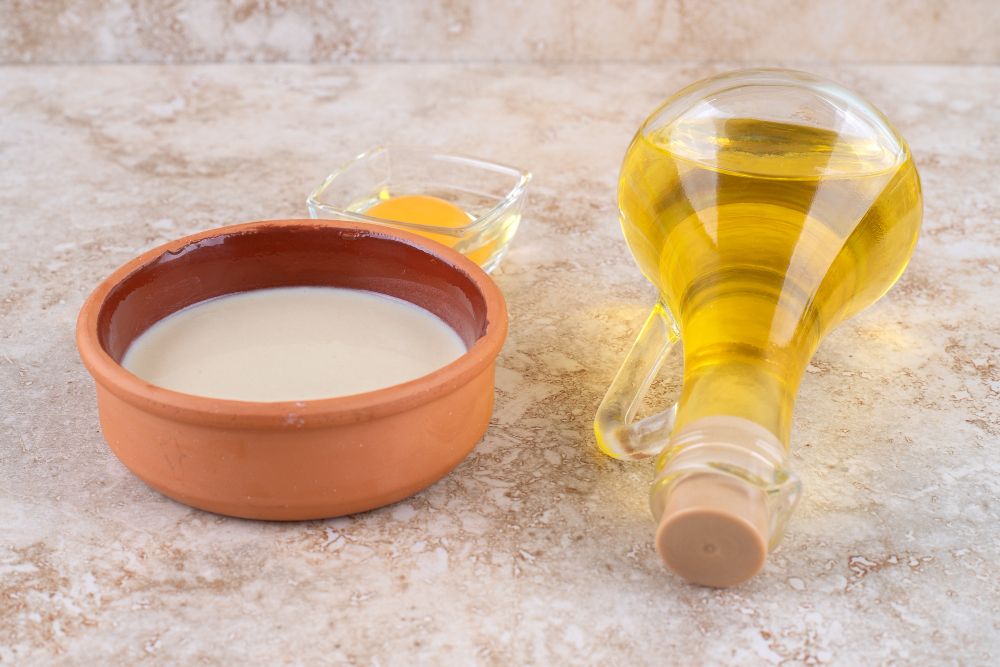Best flavourless oil for baking: A complete guide for perfect results
Special discount for chefs and bakers.
Enjoy 10 percent off any Bakers Choice products by using the code. CHEF10
When it comes to cakes, muffins, and quick breads, the type of oil you use can make or break the final taste. If you want your baked goods to shine without any unwanted aftertaste, choosing the best flavourless oil for baking is essential. A neutral oil won’t overpower delicate flavors, ensuring your vanilla cupcakes taste like vanilla—not coconut or olives. The right oil also keeps your bakes moist, tender, and perfectly textured.
What Is Neutral Oil?

A neutral oil is simply an oil with little to no noticeable flavor, making it perfect for recipes where you don’t want the cooking fat to influence the taste. When baking, the goal is for the cake, bread, or cookies to taste like the ingredients you’ve added—not the oil.
Common examples of neutral oils include canola oil, refined avocado oil, grapeseed oil, and sunflower oil. These are often refined to remove strong aromas and flavors while also increasing their smoke point, making them more versatile for both baking and high-heat cooking.
Choosing the best flavourless oil for baking ensures your delicate desserts—like sponge cakes, white bread, and sugar cookies—retain their intended flavor profile while still staying moist and tender.
10 Neutral Oils for Cooking
If you’re looking for the best flavourless oil for baking or cooking, these options deliver a clean taste and versatile performance:
- Canola oil – Affordable, widely available, and very mild.
- Refined avocado oil – Neutral flavor and high smoke point.
- Grapeseed oil – Light taste, ideal for dressings and baking.
- Sunflower oil – Mild flavor, works in cakes and muffins.
- Safflower oil – High smoke point, clean taste.
- Refined coconut oil – Neutral compared to unrefined; great for vegan baking.
- Corn oil – Subtle flavor, common in baking mixes.
- Peanut oil (refined) – Neutral when refined; not to be confused with aromatic roasted peanut oil.
- Soybean oil – Widely used in commercial baked goods.
- Light olive oil – Milder than extra virgin, good for both sweet and savory recipes.
For the purest results in delicate baked goods, opt for refined versions, as they have the least residual flavor.
Read:
best flavourless oil for baking
When choosing the best flavourless oil for baking, you want an option that blends seamlessly into your batter, keeps your bakes moist, and doesn’t interfere with flavor.
Top picks for neutral baking oils:
- Canola oil – Budget-friendly, neutral taste, and works in almost any baked good.
- Refined avocado oil – Mild flavor, rich in healthy fats, and stable at high temperatures.
- Grapeseed oil – Light texture and taste, perfect for cakes and quick breads.
- Sunflower oil – Slightly sweet and very neutral, great for muffins and pastries.
- Refined coconut oil – Flavorless version ideal for vegan baking and dairy-free recipes.
These oils provide the moisture and texture you need without overshadowing the natural flavors of your vanilla, chocolate, or fruit-based treats. For the most neutral taste, always choose refined over unrefined oils.
How to Choose the Right Cooking Oil?

Choosing the right cooking oil isn’t just about taste—it’s also about nutrition, heat tolerance, and how it complements your recipe.
Special discount for chefs and bakers.
Enjoy 10 percent off any Bakers Choice products by using the code. CHEF10
Key factors to consider:
- Flavor profile – For baking, go with a neutral oil so it won’t overpower delicate flavors.
- Smoke point – If you’re baking at high temperatures, choose oils like refined avocado, sunflower, or canola for stability.
- Nutritional value – Opt for oils rich in healthy fats, such as monounsaturated and polyunsaturated fats.
- Refinement level – Refined oils tend to have a more neutral taste and higher smoke point than unrefined versions.
- Dietary needs – Consider allergies, vegan preferences, or specific dietary goals when selecting an oil.
By balancing flavor neutrality, heat tolerance, and health benefits, you can easily select the best flavourless oil for baking or cooking.
Also read:
FAQ
Is avocado oil flavourless?
Refined avocado oil has a very mild flavor, making it suitable for baking, unlike unrefined avocado oil, which has a more distinct taste.
Can I use olive oil for baking if I want no flavor?
Yes, but choose light olive oil, not extra virgin, as it has a neutral taste and won’t overpower sweet recipes.
What’s the difference between refined and unrefined oils?
Refined oils go through a filtering process that removes strong flavors and increases smoke points, making them more neutral for baking.
Is grapeseed oil healthy for baking?
Grapeseed oil is low in saturated fat and has a clean flavor, making it a good option for both baking and salad dressings.
Which neutral oil is best for vegan baking?
Refined coconut oil is a top pick for vegan baking—it’s flavorless, solid at room temperature, and works well in dairy-free recipes.
Conclusion
Choosing the best flavourless oil for baking ensures your desserts taste exactly as intended—without any unwanted aftertaste. Whether you prefer canola for its affordability, refined avocado oil for its health benefits, or grapeseed oil for its light texture, the right neutral oil keeps your baked goods moist, tender, and full of flavor. By focusing on refined, high-quality options, you can achieve perfect results every time—letting your recipes, not your oil, take center stage.
Special discount for chefs and bakers.
Enjoy 10 percent off any Bakers Choice products by using the code. CHEF10
Share the article
article Date
2025-08-21
